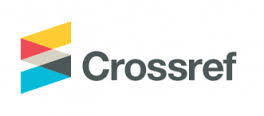The effectiveness of Group Counseling Program in Reducing academic procrastination among students with Learning Disabilities at Sultanate of Oman
DOI:
https://doi.org/10.59759/educational.v4i2.1036Keywords:
Counseling Program, Academic Procrastination, Learning DisabilitiesAbstract
The current study aimed to identify the level of academic procrastination among students with Learning Disabilities in the Sultanate of Oman. The study also aimed to investigate the effectiveness of a counseling program in reducing academic procrastination among students with Learning Disabilities. The study followed a descriptive and semi-empirical design. To achieve the study's objectives, an academic procrastination scale was used, and a group counseling program was developed. The descriptive study sample consisted of (80) students with Learning Disabilities in the Sultanate of Oman enrolled in the learning disabilities program in the Ad Dakhiliyah Governorate in the Sultanate of Oman, selected randomly. The semi-empirical study sample consisted of (20) students with Learning Disabilities who scored highest on the academic procrastination scale. They were randomly divided into two groups: an experimental group consisting of (10) students with Learning Disabilities who received a group counseling program (12 sessions), and a control group that did not receive any intervention. The descriptive study results indicated that the level of academic procrastination among students with Learning Disabilities was high. The semi-empirical study results showed significant differences between the experimental and control groups (pre-test and post-test) in favor of the experimental group, attributable to the program. The results also indicated no significant differences in the means of the experimental group between the post-test and follow-up test.
Downloads
References
Bojuwoye, O. (2019). Causes of academic procrastination among high school pupils with learning disabilities in Ilorin, Kwara State, Nigeria. International Journal of Technology and Inclusive Education (IJTIE), 8(1), 1404-1409.
Chen, W., Yang, X., & Jiao, Z. (2022). Authoritarian parenting, perfectionism, and academic procrastination. Educational Psychology, 42(9), 1145-1159. https://doi.org/10.1080/01443410.2021.2024513
Drossinou Korea, M. (2022). Special education meetings at the University and pedagogical reflections on autism. International Journal of Humanities and Social Science Invention (IJHSSI), 11(7).
Drossinou-Korea, M. (2023). Metacognitive Skills in University Students with and Without Autism Spectrum Disorders. European Journal of Special Education Research, 9(1).
Duru, E., & Balkis, M. (2017). Procrastination, self-esteem, academic performance, and well-being: A moderated mediation model. International Journal of Educational Psychology, 6(2), 97–119.
https://eric.ed.gov/?id=EJ1146738
Goroshit, M., & Hen, M. (2021). Academic procrastination and academic performance: Do learning disabilities matter?. Current Psychology, 40, 2490-2498. https://link.springer.com/article/10.1007/s12144-019-00183-3
Hen, M. (2018). Academic procrastination and feelings toward procrastination in LD and non-LD students: Preliminary insights for future intervention. Journal of prevention & intervention in the community, 46(2), 199-212. https://doi.org/10.1080/10852352.2016.1198173
Hen, M., & Goroshit, M. (2014). Academic procrastination, emotional intelligence, academic self-efficacy, and GPA: A comparison between students with and without learning disabilities. Journal of learning disabilities, 47(2), 116-124. https://doi.org/10.1177/0022219412439325
Itach, H., Hen, M., & Ferrari, J. (2022). Managing academic procrastination: A brief exploratory intervention program with ISRAELI students. Education, 142(2), 81-90.
Kim, K., & Seo, E. (2015). The relationship between procrastination and academic performance: A meta-analysis. Personality and individual differences, 82, 26-33. https://doi.org/10.1016/j.paid.2015.02.038
Korea, M. (2023). Procrastination and Individual Study Method of Students with Specific Learning Difficulties [SpLDs] In Reading Comprehension. International Journal Of Innovative Research In Multidisciplinary Education, 2(8), 300-306. https://doi.org/10.58806/ijirme.2023.v2i8n01
Learning Disabilities Association of Canada. (2015). Official Definition of Learning Disabilities. https://www.ldac-acta.ca/official-definition-of-learning-disabilities/
Martinčeková, L., & Enright, R. (2020). The effects of self-forgiveness and shame-proneness on procrastination: exploring the mediating role of
affect. Current Psychology, 39(2), 428-437.
https://link.springer.com/article/10.1007/s12144-018-9926-3
Mhlungu, S. (2018). Exploring the Perceived Effectiveness of Cognitive Behavioural Therapy as a Treatment Model for Substance Use Disorders with co-occurring Disorders at Substance Abuse Rehabilitation Centers in Gauteng [Unpublished Master Thesis]. University of South Africa, South Africa.
Mostafa, A. (2018). Academic procrastination, self-efficacy beliefs,
and academic achievement among middle school first year students with learning disabilities. Psycho-Educational Research Reviews, 7(2), 87-93. https://eric.ed.gov/?id=EJ1253219
Niazov, Z., Hen, M., & Ferrari, J. R. (2022). Online and academic procrastination in students with learning disabilities: the impact of academic stress and self-efficacy. Psychological reports, 125(2), 890-912.
https://doi.org/10.1177/0033294120988113
Patria, B., & Laili, L. (2021). Writing group program reduces academic procrastination: a quasi-experimental study. BMC psychology, 9, 1-7. https://bmcpsychology.biomedcentral.com/articles/10.1186/s40359-021-00665-9
Ryan, R., & Deci, E. (2020). Intrinsic and extrinsic motivation from a self-determination theory perspective: Definitions, theory, practices, and future directions. Contemporary educational psychology, 61, 101860.
Salguero-Pazos, M., & Reyes-de-Cózar, S. (2023). Interventions to reduce academic procrastination: A systematic review. International Journal of Educational Research, 121, 102228. http://dx.doi.org/10.1007/s10648-023-09838-x
Selçuk, Ş., Koçak, A., Mouratidis, A., Michou, A., & Sayıl, M. (2021). Procrastination, perceived maternal psychological control, and structure in math class: The intervening role of academic self‐concept. Psychology in the Schools, 58(9), 1782-1798. https://doi.org/10.1002/pits.22542
Uzun Ozer, B., Demir, A., & Ferrari, J. R. (2013). Reducing academic procrastination through a group treatment program: A pilot study. Journal
of Rational-Emotive & Cognitive-Behavior Therapy, 31, 127-135. https://link.springer.com/article/10.1007/s10942-013-0165-0
Wagner, R., Zirps, F., Edwards, A., Wood, S., Joyner, R., Becker, B.,... & Beal, B. (2020). The prevalence of dyslexia: A new approach to its estimation. Journal of learning disabilities, 53(5), 354-365. doi: 10.1177/0022219420920377


